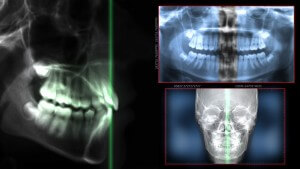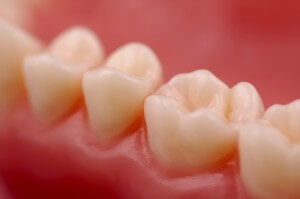Most people don’t think much about oral cancer, but we do. Consider this – 50,000 Americans will be diagnosed this year with cancer of the oral cavity or pharynx, and one in five of those people will die from it, according to the Oral Cancer Foundation. That’s why every time we look into your mouth, we’re watching for signs of cancer, just to be sure you stay healthy.
And during every regular checkup/exam/cleaning at Meyer & Johns Dental, we specifically conduct an oral cancer screening. It’s that important.

How Can You Tell?
Oral cancer generally presents itself in obvious and painful ways; sores or growths in your mouth that don’t heal after two weeks, lumps or swollen lymph nodes under you jaw or in your neck, unexplained numbness or bleeding in your mouth, difficulty or discomfort swallowing, or changes in how your bite feels.
Monthly self-exams can help identify problems early. Regularly look at the inside of your mouth, and feel your cheeks and neck for lumps or painful swelling. If you find something unusual or uncomfortable, visit us right away or contact your physician.
Oral Cancer’s Risk Factors
The risk is higher in men than in women, and increases significantly after age 40, but it can appear in anyone. Many factors can heighten your risk of developing oral cancer, including:
· Tobacco use (either inhaled or smokeless)
· Heavy alcohol consumption
· A diet low in fruit and vegetables
· HPV (Human papilloma virus) infection
· Excessive sun exposure (particularly as a child)
The Good News
You can mitigate your risk by eliminating tobacco use, drinking only in moderation, eating balanced meals, and using sunscreen. Your body will thank you for these actions, regardless of the risk of oral cancer.
Also, it’s a very treatable disease. American Cancer Society statistics show that the 5-year relative survival rate for localized stage oral cancer is 83%. Radiation therapy is the most common method, although chemotherapy is occasionally used as well.
But early detection is your best defense, and another reason that regular dental visits are so important. Contact us today to schedule an appointment. We want you – and your mouth – to be as healthy as possible.
